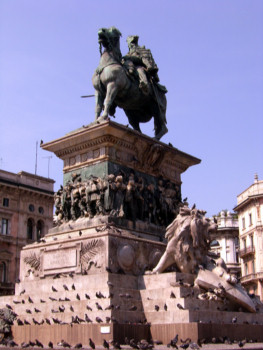CORE WORDS
COMPOUND WORDS
5000 WORDS


但是 P0344 迷信的 P5378
แต่ P0112 แต่ P0344 เชื่อเรื่องโชคลาง P5378
nhưng P0344 mê tín P5378
aber P0344 abergläubisch P5378
but P0112 but P0344 superstitious P5378
pero P0112 pero P0344 supersticioso P5378
ma P0112 ma P0344 superstizioso P5378
mais P0112 mais P0344 superstitieux P5378
PHRASES
PHRASES
Đồng hồ báo thức đã reo, nhưng anh vẫn chưa thức dậy .           | |||||||||||||||||||||||||||||||||||||||||||||||||||||||||||||||||||||||||||||||||||||||||||||||||||||||||||||||||||||||||||||
Đồng hồ báo thức đang đổ chuông, nhưng cô không muốn thức dậy .           | |||||||||||||||||||||||||||||||||||||||||||||||||||||||||||||||||||||||||||||||||||||||||||||||||||||||||||||||||||||||||||||
Có một bức tượng của Nguyên soái (tổng tư lệnh) ở quảng trường .           | |||||||||||||||||||||||||||||||||||||||||||||||||||||||||||||||||||||||||||||||||||||||||||||||||||||||||||||||||||||||||||||
Chúng tôi đang sống một cuộc sống bình thường nhưng hạnh phúc .           | |||||||||||||||||||||||||||||||||||||||||||||||||||||||||||||||||||||||||||||||||||||||||||||||||||||||||||||||||||||||||||||
Anh ấy là một người thích uống bia .           | |||||||||||||||||||||||||||||||||||||||||||||||||||||||||||||||||||||||||||||||||||||||||||||||||||||||||||||||||||||||||||||
Cô ấy được trang điểm lộng lẫy nhưng quyến rũ .           | |||||||||||||||||||||||||||||||||||||||||||||||||||||||||||||||||||||||||||||||||||||||||||||||||||||||||||||||||||||||||||||
I was born in osaka , but brought up in tokyo . | Tôi sinh ra ở osaka , nhưng lớn lên ở tokyo . | But not really . | Nhưng không thực sự .
But for exams , our school life would be more fun . Nhưng đối với các kỳ thi, cuộc sống học đường của chúng tôi sẽ vui hơn.
I am not sure but she may come . Tôi không chắc chắn nhưng cô ấy có thể đến.
We looked , but saw nothing . Chúng tôi nhìn , nhưng không thấy gì .
I'm sorry , but he is out now . Tôi xin lỗi, nhưng bây giờ anh ấy ra ngoài rồi.
I did not watch tv but studied english last night . Tôi đã không xem TV nhưng học tiếng Anh tối qua.
But , I'm going steady . Nhưng , tôi đang đi ổn định .
I can swim on my front but not on my back . Tôi có thể bơi ở phía trước nhưng không phải ở phía sau.
I looked but saw nothing . Tôi nhìn nhưng không thấy gì.
I intended to succeed , but I could not . Tôi định thành công, nhưng tôi không thể.
He has many acquaintances but few friends . Anh ấy có nhiều người quen nhưng ít bạn bè.
We were poor , but we were happy . Chúng tôi nghèo, nhưng chúng tôi hạnh phúc.
It looks like rain tomorrow , but I'll try my best . Có vẻ như mưa vào ngày mai, nhưng tôi sẽ cố gắng hết sức.
Excuse me , but where is the library ? Xin lỗi, nhưng thư viện ở đâu?
I tried to change her mind , but I couldn't . Tôi đã cố gắng thay đổi suy nghĩ của cô ấy, nhưng tôi không thể.
She is rich but he is poor . Cô giàu nhưng anh nghèo.
I can't play the piano , but she can . Tôi không thể chơi piano, nhưng cô ấy có thể.
It's raining , but I would like to go out . Trời đang mưa, nhưng tôi muốn ra ngoài.
Sorry , but he is out now . Xin lỗi , but he's out now .
He never does anything but she smells it out . Anh ấy không bao giờ làm bất cứ điều gì nhưng cô ấy ngửi thấy nó.
He is not such a fool but he knows it . Anh ấy không phải là một kẻ ngốc như vậy nhưng anh ấy biết điều đó.
We will go but you won't . Chúng tôi sẽ đi nhưng bạn sẽ không.
The baby can stand but can't walk . Em bé có thể đứng nhưng không thể đi.
A piano is expensive , but a car is more expensive . Một cây đàn piano đắt tiền, nhưng một chiếc xe hơi đắt tiền hơn.
No one is so old but he can learn . Không ai quá già mà còn có thể học.
He is rich but he is not happy . Anh ấy giàu có nhưng anh ấy không hạnh phúc.
I was born in osaka , but was brought up in tokyo . Tôi sinh ra ở osaka , nhưng lớn lên ở tokyo .
He tried hard , but he failed . Anh ấy đã cố gắng hết sức, nhưng anh ấy đã thất bại.
We waited long , but he didn't turn up . Chúng tôi đã đợi rất lâu nhưng anh ấy không đến.
It never rains but it pours . Trời không bao giờ mưa nhưng mưa như trút.
He was at the meeting , to be sure , but he was asleep . Chắc chắn là anh ấy đang ở cuộc họp, nhưng anh ấy đang ngủ.
He is young , but experienced . Anh ấy còn trẻ, nhưng từng trải.
I looked around , but saw nobody . Tôi nhìn xung quanh, nhưng không thấy ai cả.
I spoke to him in english , but I couldn't make myself understood . Tôi đã nói chuyện với anh ấy bằng tiếng Anh, nhưng tôi không thể hiểu được bản thân mình.
He is rich but he is not happy . Anh ấy giàu có nhưng anh ấy không hạnh phúc.
But my mother always answered . Nhưng mẹ tôi luôn trả lời.
The box was heavy , but he managed to carry it . Chiếc hộp rất nặng, nhưng anh ấy đã mang được.
He is a rich but dull man . Anh ta là một người đàn ông giàu có nhưng đần độn.
But what will you do if he doesn't come ? Nhưng bạn sẽ làm gì nếu anh ấy không đến?
Excuse me , but I think this is my seat . Xin lỗi, nhưng tôi nghĩ đây là chỗ ngồi của tôi.
He is not such a fool but he knows it . Anh ấy không phải là một kẻ ngốc như vậy nhưng anh ấy biết điều đó.
That , while regrettable , is true . Điều đó, trong khi đáng tiếc, là sự thật.
He is not as a fool but he knows it . Anh ấy không phải là một kẻ ngốc nhưng anh ấy biết điều đó.
I'm getting forgetful these days , but what can you do ? Dạo này tôi hay quên, nhưng bạn có thể làm gì?
But of course that was a long time ago . Nhưng tất nhiên đó là một thời gian dài trước đây.
But we carried on without him . Nhưng chúng tôi vẫn tiếp tục mà không có anh ấy.
But he is bad at reading english . Nhưng anh ấy đọc tiếng Anh rất tệ.
But few of them are worth reading . Nhưng rất ít trong số chúng đáng đọc.
He may be rich but stingy . Anh ta có thể giàu nhưng keo kiệt.
Sorry , but you must have the wrong number . Xin lỗi, nhưng bạn phải có số sai.
He is a man of few words , but he always keeps his promise . Anh ấy là một người đàn ông ít nói, nhưng anh ấy luôn giữ lời hứa của mình.
But I enjoyed farm work . Nhưng tôi thích công việc đồng áng.
Excuse me , but I didn't order this . Xin lỗi, nhưng tôi không gọi món này.
She looked for her friends but found none . Cô ấy đã tìm kiếm những người bạn của mình nhưng không tìm thấy.
He is a great lover of music . Anh ấy là một người yêu âm nhạc tuyệt vời.
You ought to have invited him , but you didn't . Lẽ ra bạn nên mời anh ấy , nhưng bạn đã không mời .
I am a lover of the beautiful . Tôi là người yêu cái đẹp.
She is poor , but she looks happy . Cô ấy nghèo, nhưng cô ấy trông hạnh phúc.
I tried to get it , but to no purpose . Tôi đã cố lấy nó , nhưng vô ích .
They never talk but they quarrel . Họ không bao giờ nói chuyện nhưng họ cãi nhau.
Ken is tall , but I'm not . Ken cao, nhưng tôi thì không.
He was poor for a long time , but he is well off now . Anh ấy đã nghèo trong một thời gian dài, nhưng bây giờ anh ấy khá giả. |





